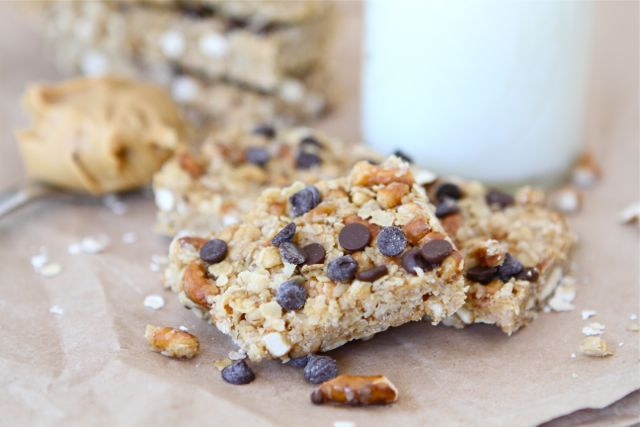Today’s guest post is from Stacy, who writes “A Beginner’s Guide to Natural Living” over at Every Little Thing. Here she gives us some easy, practical tips on how to become a healthier shopper and eater. If you like this post, check out her blog or email her at [email protected].
It can be really intimidating to shop for groceries. The more we learn about the food we eat, the more complicated our diet becomes, whether we want it to or not! With signs labeling foods as organic, gluten-free, soy, and vegan, it’s hard to know where to start when you just want to make healthier choices.
So, how do we organize all this info in order to make the best choices for ourselves and our families?
I think the most important thing we can do when thinking about our diet is to get back to basics. Think about the traditional foods that people have eaten for centuries: vegetables straight from the garden, grains straight from the Earth, meat straight from the farm, and dairy straight from the cow. The words “preservatives,” “genetically-modified ingredients,” “hormones,” and “fillers” simply weren’t a part of everyday kitchen conversation.
Getting back to those basics should be simple, right? Unfortunately, it’s exactly those buzz words that have complicated our dinner. So how do we begin to sort through all this info?

- Read labels – Ideally, ingredients shouldn’t contain more than 5 items, and they should all be ingredients you recognize in nature and you can pronounce!
- Shop outer aisles – There’s a reason the store is set up the way it is (produce on one end, dairy on the other). Most of the products in the inner aisles are loaded with preservatives (exactly why some of those products can sit on the shelf for weeks at a time!).
- Use bulk bins– Need a cup of cornmeal, rolled oats, slivered almonds, dried fruit, a serving of pasta, peanuts, trail mix, or granola? All of these all natural products can be found in bulk bins. Not all grocery stores have these but if yours does, use it! It’s much cheaper, almost always all natural, there’s no waste, and you limit packaging, which helps the Earth.
- Meal plan – Planning meals ahead of time will allow you to use natural ingredients to your advantage. Most of the meals I make aren’t anything special or complicated, but I research foods ahead of time so that it’s not easier to buy prepackaged ingredients, and I make a list, so I don’t find myself wandering the cookie aisle.
- Research “slow food” – Slow food means the food is local, fresh, and sustainable. Look around and find local butchers, markets, and farms you never knew existed. Most importantly, visit your local farmer’s markets, many of which still run in the winter. Local farms often use far less pesticides and chemicals than “big box” farms, but can’t afford the organic certification. There’s no better way to get back to basics than to buy food straight from the source!
- Shop In-Season – Look online for what fruits and vegetables are in season and bulk up on those. Eating in cycle with what the Earth is growing is great for our bodies, and when you buy in-season produce, you know you’re getting fresh, often local, goods! Make sure you look into local farmer’s markets for the best produce your area has to offer.
If you’re interested in buying organic produce, consider starting with the Dirty Dozen (the 12 fruits & veggies that test highest for pesticides). Organic means there’s few pesticides or other chemicals sitting on top of the lovely greens you picked up at the market. Organic is awesome but if you’re just not ready, just focus on ingredients and eating straightforward, less processed foods. There’s only one ingredient in “carrots!”
Switching to a more natural lifestyle doesn’t have to be difficult if we take our time, make smart choices, and look for food as close to the original source as you can get. You’ll feel better, look better, and be incredibly proud of your “naturalized” lifestyle!








1 Comment
Stacy @ Every Little Thing
February 28, 2011 at 10:45 amThanks again for letting me guest post! If anyone has any questions, feel free to stop on by my blog or shoot me an email 🙂